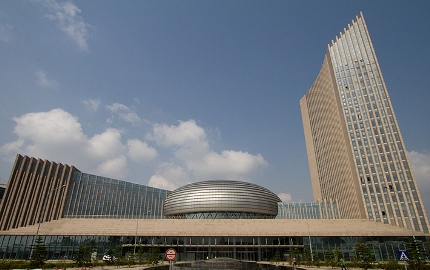African delegates dealt on strategies to stop Cancer, urge for robust measures
By Tesfa-Alem Tekle
July 27, 2016 (ADDIS ABABA) – Hundreds of African delegates withdrawn form all over the continent called for more concrete efforts to stop cancer.

Delegates expressed concern on the rapid rises of cancer particularly on cervical, breast and prostate cancer.
Participants underscored a need for collective and more resolute measures both at regional and international levels to prevent the spread.
The Conference aims to ensure the provision of a strategic guidance based on concrete lessons learned over the past decade in ways of prevention and controlling cancer.
It was disclosed at the conference the need to galvanize and harmonizing efforts to fortify country level programs and initiatives to battle cancer.
Ethiopia’s First lady Roman Tesfay, who is also Chairperson of COMESA First Ladies unit, stated that cancer has become a growing challenge across the African continent.
Roman reiterated on the need to work relentlessly towards creating public awareness, providing adequate medical services, and putting in place effective preventive measures, and early diagnosis and treatment.
She also stressed on the need for a concerted and comprehensive action by governments and international organs.
The First Lady said the conference has created a platform for a wider range of stakeholders actively working in cancer prevention and control to come together to reflect on the success Africa achieved and the challenges faced in the prevention and control of cervical, breast and prostate cancer over the past decade.
The Conference has noted with great concern the growing burden of cervical, breast and prostate cancer in Africa and its damaging effect on its communities, nations and the entire region.
It was noted during the opening of the Conference that cancer is increasing at an alarming rate in Africa, and it kills more people than HIV/AIDS, Malaria and Tuberculosis combined.
Cervical cancer rates in some parts of the continent reach up to 40 cases per 100,000 women.
“This is further confounded with highest maternal mortality rate in the region resulting in unacceptably high number of women deaths,” said Kebede Worku, Ethiopian State Minister of Health in a communiqué he read after conclusion of the Conference.
It was disclosed that the gathering will bolster the effort of scientists and researchers, health professionals, philanthropists, civil society groups, individuals from the private sector as well as cancer survivors from all over the world in the efforts of stopping Cervical, Breast and Prostate Cancer.
Held from July 24 to 27 under the theme, “A decade of accomplishment, our enduring legacies and challenges ahead” the high -profile gathering conference has attracted more than 5000 distinguished delegates and speakers from Africa and across the world.
Among others African head of State and Government, African Parliaments, African First Ladies, African Ministers of Health, leaders of organizations and institutions have taken part in the conference.
The conference was organized by the Office of the First Lady of the Federal Democratic Republic of Ethiopia, in partnership with the Princess Nikky Breast Cancer Foundation.
The conference is Africa’s largest gathering in bringing together international stakeholders and specialists in the field of cancer prevention and control. Ethiopian government has expressed commitments for the expansion of cancer treatment centers in the country.
Meanwhile, Ethiopian Ministry of Health says it has set to replicate the country’s success on HIV/AIDS to cancer treatment.
Ethiopian Minister of Health Dr. Kesetebirhan Admassu disclosed that training of doctors and health professionals have been given due attention to meet the growing demands of professionals in the area.
The minster said the Ethiopian government has expressed commitments for the expansion of cancer treatment centers in the country.
(ST)
